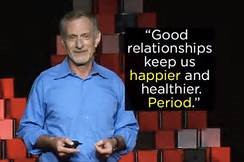Topic 1
Too many of Americans (over 40 million) do not consistently have enough money to have the basic needs met for their long-term survival. Millions more have just enough, with little or no capacity for missing a paycheck or two. On a related note, the top 10% of the wealthiest hold 76% of the wealth. The rest of us in the top 50% hold another 23% of the wealth. That leaves the bottom 50% share about 1% of the wealth.
Long-term survival requires enough: food, water, shelter, clothing, sanitation, education, healthcare, safety/security and the like. We need enough of these things consistently for the duration of our lives. Having more than enough food does not enable us to survive longer. Having less than enough is heartbreaking. By definition, and in reality, people with poverty level or worse incomes often do not have basic need security. People close, but over, the poverty level is only marginally better.

Cutting taxes for the rich at the expense of the poor should not be our highest priority. Having the rich pay their fair share to help support healthcare and various programs for the poorest of the poor seems like a reasonable thing.
U.S. Census Bureau just published a report titled Income and Poverty in the United States: 2016. It is a technical report with about 15 tables and 8 graphs. The median household income in 2016 was $59,039. The rich are getting richer. There are over 40 million people living in poverty. There are a whole lot of additional people not that far from being in poverty.
Topic 2
Does being rich make you happy? Turns out that happiness is not related to wealth. The key to happiness is good relationships. If you have not seen the Ted talk called “What makes a good life? Lessons from the longest study on happiness | Robert Waldinger”. Take the time to see it. Amazing. Good relationships keep us happier and healthier. Social connections are really good for us. Loneliness is toxic. It is not the number of friends you have, it is the quality of relationships. Good relationships don’t just protect our bodies but also our brains.

To have a relationship with someone, you have to share common experiences with them. Whether that relationship is a good relationship is for the parties in the relationship to decide. Just saying, to have a friend, be a friend. It is hard to overstate the importance of having friends. Humans are innately social. We need to belong. We need social exchanges. We define ourselves in relation to others, our emotions and behaviors are shaped by our relationships.
Topic 3
There is a clump of trees on the far end of the giant parking lot behind the building in which I work. Over the years, periodically, a plume of black smoke comes from the woods. We hope the person got out because a cardboard, stick and tarp shelter burns to the ground very quickly. Those in the bottom income levels, have little resources and are without food and shelter security. Being homeless is a dangerous place to be.

Topic 4
Retired = unemployed. Per the Oxford dictionary retirement = “The action or fact of leaving one’s job and ceasing to work”. Retired means you quit your job or were let go and implies you do not intend to seek new employment. Being retired does not change the need for having enough income to maintain basic needs security.
Life expectancy has risen to 78.8 years. If you reach age 65, your average life expectancy increases to 84.3. If you are 65 on average you will live another 19 years. Think back to all that has happened in the past 19 years of your life. Remember when there was a real concern that all of the world’s computer systems would crash at midnight on 12-31-1999. Use that as a benchmark. The world has changed. Back then you could not be on the phone and the internet at the same time.
Too many of us forget that life will go on when we are retired. Things will be different not only because we will have retired but because things always change over time.
Topic 5
Social Security benefits are designed to replace about 40% of the pre-retirement income. Nine out of ten individuals over the age 65 receive social security benefits. 46% of the workforce in private industry has no private pension coverage. 39% of workers report that they and/or their spouse have not personally saved any money for retirement.

The point I want to make about social security is not really about Social Security. If someone is living on only or mostly Social Security, they are living on about 40 – 50% of their pre-retirement income. In most cases, they are living at or close to the poverty level. Chances are good they qualify for and receive some government assistance. Often times some sort of subsidized housing. Which is a good thing to have if you need it?
It just feels to me that sometimes people should consider not retiring just because they can and instead consider waiting to retire until they can better afford to retire. Conversely, I think more employers should consider being more schedule flexible with their older employees. Maybe more of them would work longer if they could start an hour later and take time off more easily.
Topic 6
It was 1979. Inflation was over 11%. The U.S. was heading into recession. A 27-old Industrial Relations Director, me, was working to help White Farm Equipment Corporation survive Chapter 11 bankruptcy. There was not enough corporate cash flow to cover the unfunded cost of pensions for the thousands of retirees. The White Farm Equipment and Minneapolis-Moline (predecessor corporation) pension plans were going to be terminated and turned over to the Pension Benefit Guaranty Corporation (PBGC).
The bottom line, retires would get most, but not all, of their monthly pension amount. It was not my fault. The Board of Directors authorized the termination and some very high paid lawyers out of Chicago handled the legal work. My name was on the notice to the retirees, I had to appear in Court and I was the one grilled at the United Auto Workers Union vs White Farm Equipment Corporation arbitration hearings. Judge Miles Lord issued a restraining order with my name on it as an “officer of the Corporation”. The restraining order was over-turned at trial. There were protestors and TV news crews in front of my office. In the end, the pension plans were terminated.
Several high-paid experts spent many hours explaining to me how pension plans worked so that I could be a credible representative of the corporation in the various legal proceedings. I did my job, which was not fun. About a year later I was laid off also.
With time, came some perspective.
This post was some of that perspective.